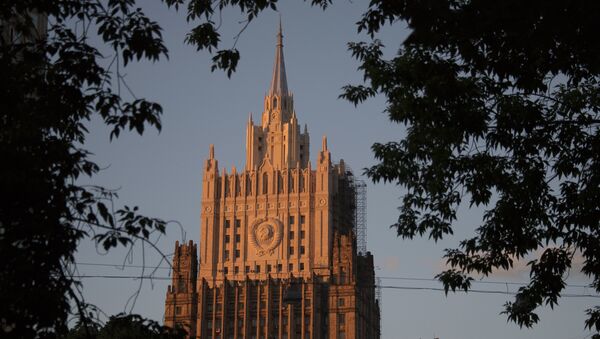The propaganda campaign unleashed by the West to demonize Russia and to accuse Moscow of 'world-wide' cyber attacks is aimed at diverting attention from efforts by the US and its allies to build up their own cyber potentials and prepare for cyberwarfare operations, the Russian Foreign Ministry said Monday.
"There is no doubt that the campaign to demonize Russia and the cyberattack charges brought against us are intended to divert the attention of the Western public from the efforts of the United States and its allies to build their own cyber potentials and prepare for cyberwarfare operations," the ministry said, commenting on the recent accusations against Moscow by the Netherlands.
Moscow stressed that the Dutch accusations were aimed at unleashing a new spin of propaganda attacks against Russia as the actions of the Dutch authorities were clearly coordinated with their Western allies, particularly the United States and Great Britain.
READ MORE: Lavrov Calls Situation Around Russian 'Spies' in Netherlands Deceptive Maneuver
The Russian side emphasized further that Dutch authorities did not press official charges against the accused Russian nationals in April — at the time of the detention in the Hague.
"They were not asked any questions. They simply had their equipment, including mobile phones, seized, thereby depriving them of the opportunity to promptly contact the embassy," it said.
Earlier in the day, Russian foreign minister Sergei Lavrov said that there was nothing secret in the April visit to the Hague by the Russian experts accused of espionage by the Dutch authorities and the Netherlands made the claims to distract the public ahead of the NATO ministerial meeting.
The Russian foreign ministry's comments come following the announcement last Thursday made by Dutch Defense Minister Ank Bijleveld that four Russian citizens had been expelled from the Netherlands on April 13 on suspicion of an attempted cyberattack on the Organisation for the Prohibition of Chemical Weapons (OPCW), noting that the suspects had diplomatic passports. In its turn, the Russian side stated that there was "nothing secret about the trip of the group of Russian technical specialists" and "it was a completely open and routine working trip."



